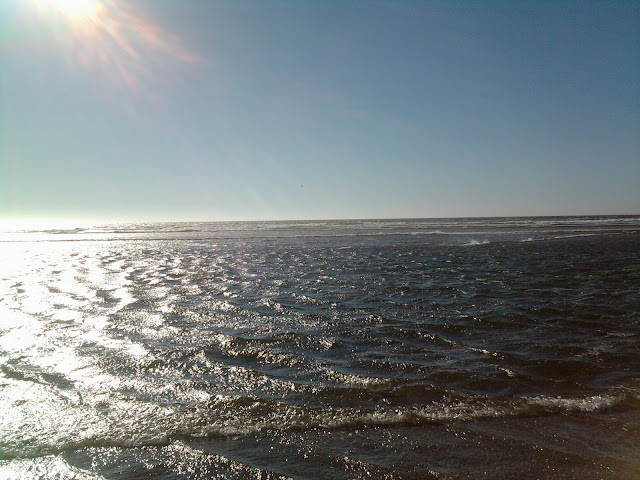STORY OF A GOOD BRAHMIN
by Voltaire
Travelling through India, I met an old gentleman of the highest caste, a Brahmin, a very wise man, witty and learned. On top of that, he was rich, and consequently even wiser; for, lacking nothing, he had no need to deceive anyone. His family was well governed by three gorgeous wives who religiously studied the art of pleasing him. When he was not busy amusing himself with his wives, he philosophized.
His house had charm and beauty, was well decorated, and was surrounded by colorful and fruitful gardens. Nearby lived an old Indian woman, bigoted, stupid, and quite poor.
The Brahmin jolted me one day with this: “I wish I had never been born.” I asked him why, and he answered me:
“I have been studying for forty years...and that is forty years wasted. I teach others, but actually I know nothing. This situation makes me feel so much humiliation and disgust with myself that life is unbearable to me.
“I was born, I live in time, and I do not know what time is. I find myself at a point between two eternities, as our sages say, and I have no idea of what eternity means. I am made of matter, and I am able to think, yet I have never been able to find out how thought is caused. I do not know...Is my ability to think a simple faculty in me like that of walking, or digesting food? Do I think with my head, as I take with my hands? Not only is the explanation of my thinking unknown to me, but how I am able to move my body is also a great mystery.
“I don't know why I exist. Every day people ask me questions on all these points. I have to answer, but I have nothing worthwhile to say. I talk, talk, talk, and then I am bewildered and ashamed of myself after all that hot air.
“It is even worse when they ask me whether Brahma was produced by Vishnu or whether they are both eternal. Well, I don’t know a thing about it, and that's obvious in my pathetic answers. ‘Reverend Father,’ they say to me, ‘explain to us why evil floods the whole world.’
“I am in as much of a fog as those who ask the question. Sometimes I tell them that everything happens for the best, but those who have been destroyed and mutilated by war don't believe that for a second, and neither do I.
“So I retreat to my house overwhelmed with my curiosity and my ignorance. I read our ancient books, and they make the darkness even darker. I talk with my friends. Some tell me that we should just enjoy life and laugh at mankind. Others think they know a little something, and promptly get lost in ridiculous, pompous, empty ideas. Everything increases my feelings of doubt and misery. I am sometimes ready to fall into despair, when I think that after all my dedication and seeking I know neither where I come from, nor what I am, nor where I am going, nor what shall become of me when this life is over.”
I was greatly distressed by the mental condition of this good man. It seemed that no one was any more reasonable or honest than he. I could see that the more he came to understand, the more he came to feel, and consequently the more unhappy he was.
That same day I saw the old woman who lived near him. I asked her if she had ever been confused and upset not to know how her soul was created. She didn't even understand my question! She had never pondered for a single moment of her life over a single one of the points that tormented the Brahmin. She believed with all her heart in the changing forms of the Lord Vishnu, and, provided she could occasionally have some water from the Ganges to wash in, she considered herself the happiest of all women.
I was so amazed by the happiness and contentment of this impoverished creature, that I returned to my Brahmin philosopher and said to him:
“Aren't you ashamed to be unhappy when right at your door there is an old puppet who never bothers with thinking and who lives quite happily?”
“You are right,” he said; “I have told myself a hundred times that I would be happy if I were as stupid as my neighbor, and yet I would want no part of that kind of happiness.”
These words of the Brahmin made a greater impression on me than all the rest. I questioned myself and saw that certainly I would not want to be happy on condition of being ignorant.
I put the question to some other philosophers, and they were of the same opinion. “There is, however,” I added, “an enormous contradiction in this way of thinking.”
For after all, what is at issue here? Being happy. What does it really matter if you are intelligent or stupid? And what's more, those who are stupidly content with their being are quite sure of being content; those who philosophize and scrutizine and ponder and reason are never so sure of reasoning well.
“Clearly,” I said, “we should choose not to have good sense, if that good sense contributes to our misery.”
Everyone agreed with me, and yet I found no one who wanted to accept the bargain of becoming ignorant in order to become content. From this I concluded that though we greatly value happiness, we place even greater value on reason.
But yet, upon reflection, it seems that to prefer reason to happiness is to be quite insane. How can this contradiction be explained? Like all the others...it is matter for much talk.


















